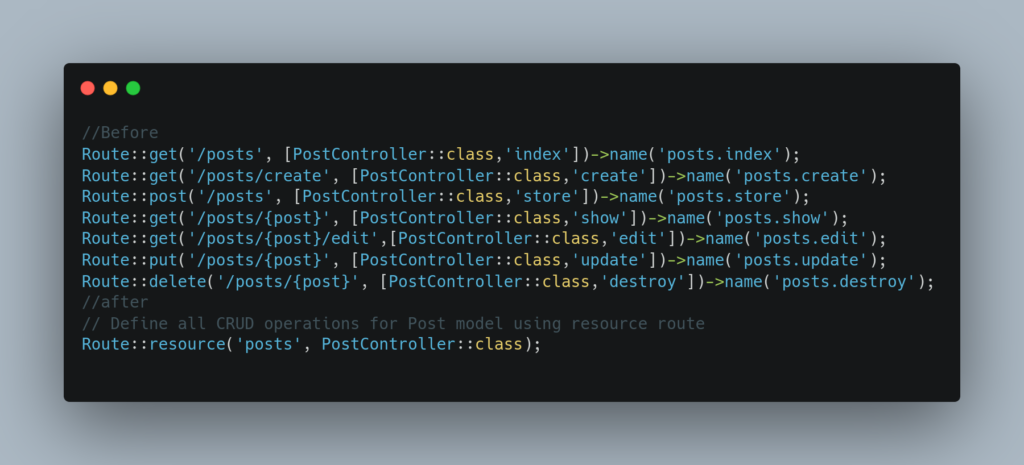Laravel Resource Routes for Learners

You can write one line of code for defining a route for a CRUD operation, instead of writing different routes. This is called Resource Routes.
Why we need this?
Resource routes are a way of defining a set of routes that map to the various CRUD (Create, Read, Update, and Delete) operations for a resourceful controller.
1. Optimizes time and code.
2. Structured way.
3. Universal standard.
Resource routes in Laravel are defined using the Route::resource method. Here’s an example:
In this example, we define a set of resource routes for the PostController. Laravel will automatically generate routes for each of the CRUD operations, as well as a few additional routes:
| Method | URI | Action | Route Name |
|---|---|---|---|
| GET | /posts | index | posts.index |
| GET | /posts/create | create | posts.create |
| POST | /posts | store | posts.store |
| GET | /posts/{post} | show | posts.show |
| GET | /posts/{post}/edit | edit | posts.edit |
| PUT/PATCH | /posts/{post} | update | posts.update |
| DELETE | /posts/{post} | destroy | posts.destroy |
Even you can create a resource controller by one command.
In this controller, you will get all the functions written for you with an empty body.
In conclusion, resource routes in Laravel are a powerful and convenient way to define all the CRUD routes for a given resource in a single line of code. They provide a standardized way of naming and organizing your routes, making it easier to maintain and understand your application’s codebase.


